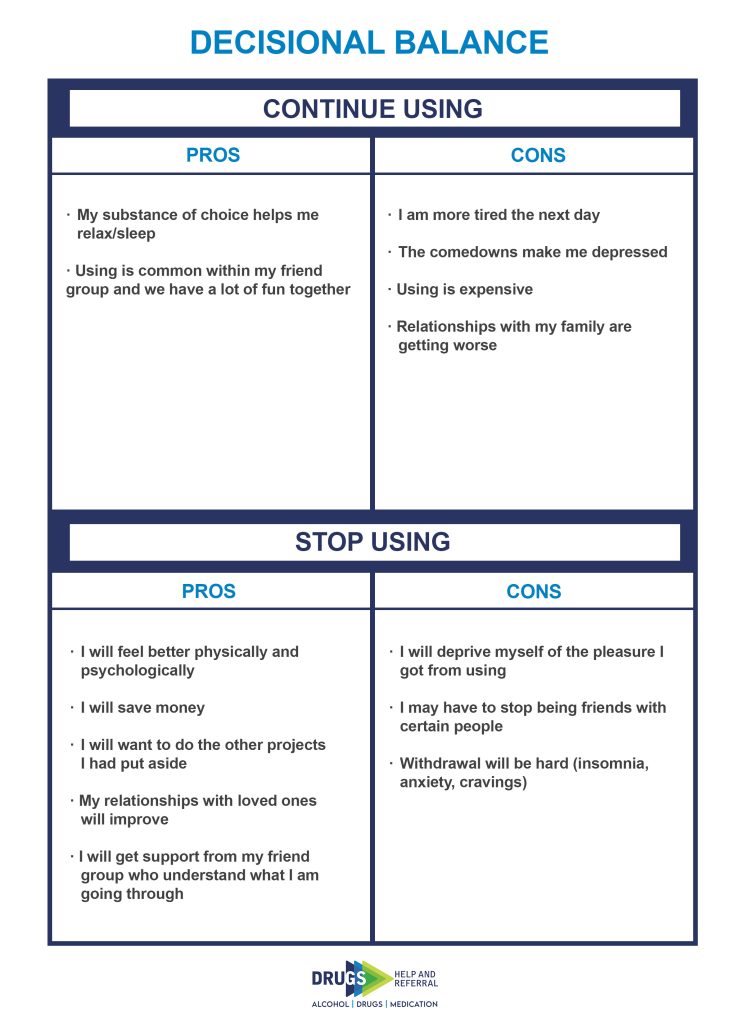Reviewing our substance use
The decisional balance is a tool that can be used in many situations that require making important decisions: professional, personal, investments or any other big life changes.
When it comes to substance use, many important decisions, at many stages during a process of change, may be worth taking the time to think them through. Here are some examples:
- Am I ready to cut down or stop using altogether?
- Should I go to therapy?
- I am having a craving; how can I resist using?
- Should I use treatments like methadone to help with my use of opioids?
- Should I seek help?
The decisional balance aims at comparing the benefits/pros and costs/cons of two situations:
- The status quo, meaning not changing anything and continuing as usual.
- Making a change, meaning changing one’s habits according to their goals
« The person becomes more objective about their situation and takes some distance. They can then concretely see what is standing in the way of enacting change. »
At first, it may be surprising to make a list of the benefits/pros of continuing to use. However, they do exist, and it is important to identify them.
« People would not use if there were no benefits to doing so » explains David Galipeau, Counselor at Drugs: help and Referral. « But they may be in denial about the consequences. This tool helps to see the whole situation. […] The person becomes more objective about their situation and takes some distance. They can then concretely see what is standing in the way of enacting change. »
Example of a Decisional Balance
Below is an example of a decisional balance that could be done by someone wanting to stop using:

